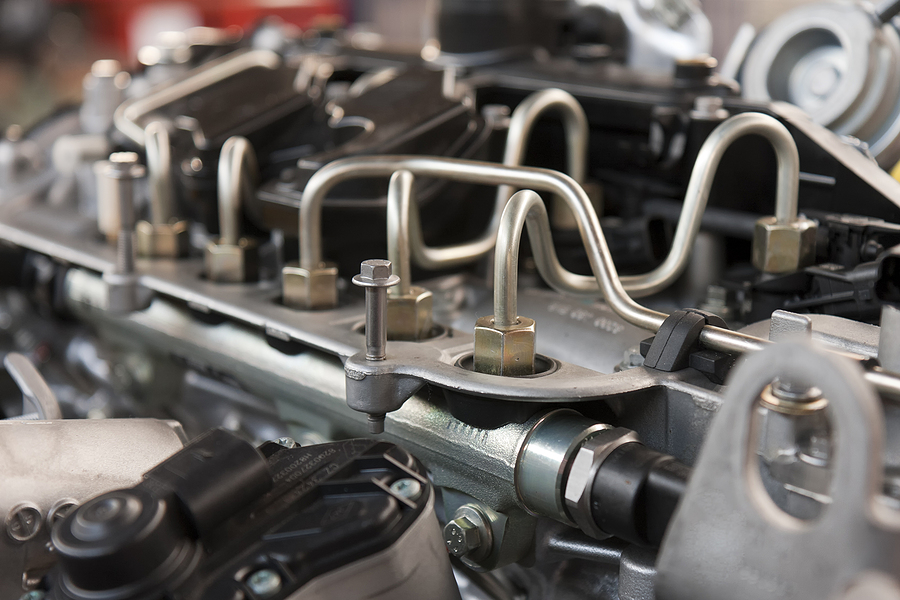For many vehicle owners, the concept of fuel system repairs can seem daunting and overly technical. However, understanding the basic components and functions can significantly simplify the process. In this guide, we will delve into the intricacies of your vehicle’s fuel system, demystifying elements such as fuel pumps, fuel filters, fuel lines, gaskets, carburetors, and tanks.
We’ll explore common fuel pressure problems and discuss preventive measures for maintaining an optimal fuel system. Additionally, we’ll provide insight into the average costs of fuel line and tank replacement. Whether you’re interested in fuel system repair, fuel injection service, or carburetor repair, this guide offers comprehensive information to keep you in the driver’s seat of your vehicle’s health. Buckle up as we journey into the heart of your vehicle’s fuel system.

The Role of Fuel Pumps in Cars
At the core of your vehicle’s fuel system is the fuel pump. This essential component is responsible for transferring fuel from the tank to the engine. In modern vehicles, fuel pumps are typically located inside the gas tank and utilize an electric motor to generate pressure to push fuel through the lines. Issues with a faulty or failing fuel pump can result in insufficient fuel supply to the engine, causing a variety of performance problems.
Signs of a failing fuel pump may include difficulty starting the vehicle, hesitation or sputtering while accelerating, and stalling while driving. Regular maintenance and timely replacement when needed can prevent costly repairs down the road.
Fuel Filters
Fuel filters serve as a protective barrier between your vehicle’s engine and any harmful debris or impurities that may be present in the fuel. As the fuel flows through the filter, it traps any contaminants, preventing them from entering the engine. Over time, these filters can become clogged, reducing fuel flow, and potentially causing damage to your engine. Regularly replacing fuel filters is crucial for maintaining a healthy fuel system.
Fuel Lines
Fuel lines are the arteries of your vehicle’s fuel system, carrying fuel from the tank to the engine. These lines are typically made of rubber or plastic and can become corroded or damaged over time. Corroded fuel lines can cause leaks, leading to potential safety hazards and costly repairs.
Gaskets
Gaskets act as seals between different components of the fuel system, preventing leaks and maintaining proper pressure. Regular inspections and timely replacements of worn or damaged fuel lines and gaskets are essential for optimal performance.
Carburetors
Carburetors were once a standard component in all vehicles but have since been replaced by fuel injectors in most modern cars. However, they’re still found in some older vehicles and can experience problems similar to fuel injectors, such as clogs or leaks. Carburetor repairs often involve cleaning or rebuilding the component, but they may also require replacement if they are beyond repair.
Preventing Fuel Pressure Problems
Fuel pressure problems can occur due to a variety of issues, including a malfunctioning fuel pump, clogged fuel lines, or a faulty fuel pressure regulator. These problems can lead to poor engine performance, reduced fuel efficiency, and potential safety hazards. Regular maintenance and prompt repairs are essential for preventing these issues.
Fuel Line and Tank Replacement Cost
The cost of repairing or replacing components within the fuel system can vary significantly depending on the make and model of your vehicle, as well as the severity of the problem. On average, a fuel line replacement can cost between $150 and $200, while tank replacement can range from $1,000 to $2,000. However, regular maintenance and timely repairs can help avoid these costly expenses.
In Conclusion
A clear understanding of your vehicle’s fuel system is crucial for maintaining its health and efficiency. Regular maintenance and prompt repairs can prevent costly fuel system problems, ensuring your vehicle runs smoothly and reliably. Whether you’re in need of fuel system repair, fuel injection service, or carburetor repair, this comprehensive guide has provided you with the knowledge to make informed decisions about your vehicle’s fuel system.
Remember to always consult a professional mechanic for any repairs or replacements needed to keep your vehicle running at its best. Contact Northeast Auto Service at 317-475-1846 for professional fuel system repair and service in Indianapolis, Indiana. Request a free estimate, or schedule service, today.
Related Posts:
What is a Fuel Conditioner and Should I Use One?
How to Tell if Your Car Needs Fuel Induction Service
Difference Between Return and Returnless Fuel Systems
